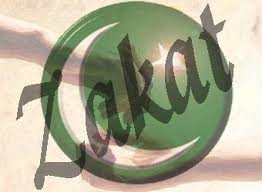The Islamic taxation system

PAS being a party that is supposed to champion the religion of Islam should take the initiative to revamp the Islamic taxation system in the country. They can initially implement the system in the 3 states under the PR governments. I believe if the tax collection is done efficiently in the various states in the country, the zakat revenue can reach a whopping sum of more than one billion ringgit annually!
Awang Abdillah
Zakat is the 4th tenet of the Islamic faith. It constitutes the tax revenue and sadaqah (alms/charity expenditure) of the Islamic (welfare) taxation system.
However, many Muslim governments do not implement it fully to protect the economic interests of those in power or fail to comprehend the virtues of the Islamic taxation system. Zakat is a mandatory payment for those earning the profits from their business entities and earn personal incomes above certain amounts respectively, and those who own different kinds of non-productive assets above certain values respectively.
The virtues of zakat are many. Firstly, the tax money is used to redistribute the wealth of the country to those in need and to uplift their economic well-being. Secondly, the system reduces the stocking and concentration of wealth and riches in the hands of the few that lead to greed for materialism and worldly pleasures. Thirdly, the tax cleanses the hearts of Muslims and their wealth and riches from ill-gotten sources. Fourthly, zakat money can be spent to reduce the incidences of crime and vice.
The standard rate of zakat payment is at 2.5% annually (rates may vary according to different items) on the economic wealth of Muslims namely the net profits of businesses and personal incomes; and on their riches namely the non-productive assets such as luxury houses and cars, jewellery, cash deposits in banks and other properties in the country and overseas, above certain amounts or values respectively.
The tax should be paid directly to those in need or through Islamic institutions such as Tabong Zakat, Baitulmal board or the department of Zakat for subsequent redistribution. The tax money is not a saving or an investment fund or business working capital. Hence, it cannot be used for purposes other than to be given to those in need. The main category of those eligible to receive the sadaqah (charity/alms money) as stated in Surah Tauba verse 60 are the poor and needy, those employed to administer the collections, whose hearts have been reconciled, who are in bondage and in debt, those involved in the cause of Allah, and the wayfarers.
Under the present circumstances we may include other specific groups in the list – widows, orphans, the homeless, students, the sick and disabled, couples/families facing financial woes, religious bodies or organizations in dire need of funds and the like. However, another category of those that need attention are youths both boys and girls who are prone to influences to commit crime and vice. In most cases, street crimes and vice are committed by youths who do not have money.
Hence, the zakat taxation system is quite comprehensive in tackling many economic and social problems besetting the Muslim community. PAS being a party that is supposed to champion the religion of Islam should take the initiative to revamp the Islamic taxation system in the country. They can initially implement the system in the 3 states under the PR governments. I believe if the tax collection is done efficiently in the various states in the country, the zakat revenue can reach a whopping sum of more than one billion ringgit annually!
All Muslims who own profitable enterprises, high incomes and own properties and assets should declare the amount and value of their wealth and riches to these institutions for the purpose of tax assessment.
How zakat money can reduce crime and vice
Compared to the other races in Malaysia, the Malays/Muslims are poor financially due to their weak economic performance. Financial shortcomings is one of the main causes of crime, vice and family woes. Savings is one form of overcoming the financial shortcomings and sustaining the economic well-being and dignity of an individual/community. Savings can be utilized in times of recession when businesses turn bad, as a better source of business capital than borrowing, an important source of bank credit, and to keep crime at bay.
It can be observed that those youths with no proper jobs or unemployed and without having bank savings or cash in their pockets are very often prone to crime and vice. This deprivation creates a feeling of hopelessness and loss of human dignity tempting them to commit crimes such as snatch thefts, robbery, rape and the like, and vices such as drug addiction and prostitution.
Sadaqah money can help to reduce the high rate of divorces among Muslim couples too. Tabong zakat or Baitulmal boards can go a long way to help these youths by contributing to their savings deposits, or cash handouts to those target groups to reduce incidences of crime and vice, which then will help reduce costs to the government in the maintenance of peace and security in the country.
PAS clerics can help to prepare a comprehensive guideline on the different tax rates and the categories of taxable items based on the Quran and the Hadiths, for Muslims in Malaysia.

